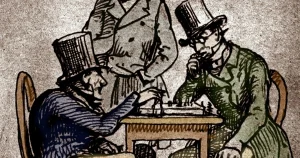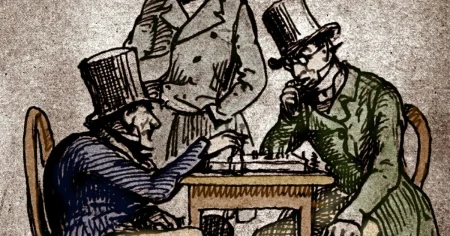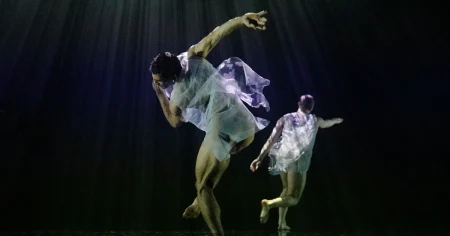Aslak Nore’s ”Arctic Inheritance” unfolds as a thriller with literary aspirations, weaving a complex narrative tapestry against the backdrop of Norwegian society. The novel opens with a scene of ideological debate within a Maoist youth organization in 1970s Bergen, highlighting the tension between revolutionary fervor and the allure of Western pop culture, exemplified by ABBA’s music. This seemingly trivial conflict sets the stage for Connie’s rebellion against the group’s dogma and her subsequent entanglement in a web of family secrets and personal tragedies, including a forced abortion. The narrative introduces the wealthy shipping family to which Connie belongs, hinting at a generational clash and the inherent contradictions of privileged individuals embracing anti-establishment ideologies.
Nore’s narrative skillfully captures the zeitgeist of the era, touching upon the appeal of Marxism-Leninism among affluent Scandinavian youth and the unique atmosphere of Norwegian high schools. The integration of Swedish pop music into the storyline serves as a commentary on cultural appropriation and Norway’s ambition to expand its global influence, following in the footsteps of its successes in genres like autofiction and the world of sports. The novel’s tone exudes a worldly-wise cynicism, suggesting an author intimately familiar with the darker corners of human experience. This depth of understanding extends beyond superficial tropes, delving into the complexities of human motivation and the intricacies of political maneuvering.
Despite its strengths, ”Arctic Inheritance” ultimately falls short of its literary ambitions. The plot relies heavily on predictable thriller tropes, including revenge plots, hidden identities, and dramatic revelations that feel contrived and lack originality. The characters, while engaging at times, are largely driven by stereotypical motivations, reducing their depth and complexity. The narrative’s attempt to offer insightful commentary on Norwegian society often misses the mark, resorting to clichés and caricatured depictions of political figures. This weakness in social commentary undermines the novel’s potential to transcend the genre’s limitations and provide a truly insightful exploration of Norwegian culture.
Furthermore, the novel’s pacing suffers from a rushed and uneven narrative structure. The plot jumps between exotic locations with a frenetic energy that feels more suited to a screenplay than a novel. This rapid-fire progression leaves little room for character development or nuanced exploration of the themes. The dialogue, too, is often stilted and unnatural, resembling poorly translated lines from a low-budget action film. These stylistic shortcomings detract from the overall reading experience and contribute to the sense that the novel prioritizes plot twists and sensationalism over literary depth.
The novel’s reliance on genre conventions undermines its potential to offer a truly unique reading experience. While the initial premise and historical context are intriguing, the execution falters due to an overreliance on familiar tropes and a lack of subtlety in character development. The melodramatic plot twists and predictable revelations diminish the impact of the narrative, leaving the reader feeling somewhat detached from the characters’ emotional journeys. Despite the author’s apparent research and attention to detail in certain aspects of the story, the overall effect is one of a formulaic thriller rather than a truly compelling work of literary fiction.
In conclusion, ”Arctic Inheritance” presents a mixed bag. While the novel offers glimpses of intriguing social commentary and historical context, it ultimately succumbs to the pitfalls of genre fiction. The overreliance on predictable plot twists, stereotypical characters, and clunky dialogue prevents the narrative from reaching its full potential. While the novel may entertain readers seeking a fast-paced thriller with a touch of Scandinavian intrigue, it falls short of its aspirations to offer a truly insightful and original literary experience. Ultimately, the novel reads more like a competently executed but uninspired piece of genre fiction rather than the groundbreaking literary work it seemingly aims to be.














